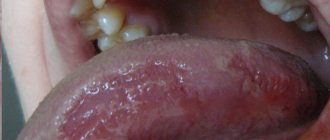Unpleasant sensations, pain, burning in the genital area in a man can cause him constant anxiety, irritation and a desire to relieve the itching by scratching. Unfortunately, this will not bring relief. These symptoms are an alarming signal and a protective reaction of the body to diseases of the genital organs.
In this case, there is pain in the head of the penis and other symptoms: redness of the head; the appearance of a rash on the genitals, near them; itching, burning sensation; inflammation of the lymph nodes located in the groin area; the appearance of unusual discharge from the urethra; difficulty urinating; sometimes general malaise, increased body temperature.
Pain and burning in the genitals in men can have the following main causes: inflammatory processes and sexually transmitted infections; mechanical, thermal and chemical damage - various injuries; circulatory disorders; pain during sexual intercourse associated with genital disorders in men and women; irritants that are inside the urethra (salt crystals, stones, foreign bodies); some disorders of the anatomical structure of the penis.
If such localized forms of pain or burning in the genitals in men occur, it is necessary to urgently consult a urologist.
Physiology of urine output
Urination is necessary to remove unnecessary metabolic products and harmful chemical compounds from the body.
Urine itself is formed in the kidney tissue as a result of blood filtration: nephrons successively remove ballast substances from the blood vessels and return necessary components, such as proteins and salts, to the bloodstream. More than one hundred liters of primary urine can be formed per day, but as a result of final filtration, 800-1500 milliliters of liquid per day are removed from the body. The excretory fluid formed in the kidneys penetrates into other parts of the excretory system for accumulation and gradual removal from the body. Approximately 500 ml of urine can be deposited in the bladder, and a person begins to feel the need to urinate when a quarter of the organ’s volume is filled. The signal received from the brain relaxes the sphincter and promotes the removal of fluid from the body through the urethra. In men, part of the urethra passes through the prostate gland, so prostate pathologies can cause dysuria.
Why is ureteroscopy needed?
The doctor thoroughly examines the mucous membrane of the urethra and, if necessary, performs a biopsy. This is the collection of a small piece of the urethral mucosa, which will later be examined using a microscope. In addition, thanks to urethroscopy, it is possible to expand the urethra, remove a tumor, scar, etc.
Urethroscopy happens:
1. Dry. Inserting a Vaseline-lubricated urethroscope into the urethra. The entire length of the urethra is examined.
2. Irrigation. This method is characterized by a constant supply of fluid into the urethra. By washing and stretching it, the doctor carefully examines its posterior region.
Carrying out a three-glass test
It is carried out to establish the localization of inflammation and conduct differential diagnosis. This refers to the following diseases: cystitis, pyelonephritis, cystitis, prostatitis.
Until such a study is carried out, the patient should not empty the bladder for five hours. A three-glass test is usually prescribed in the morning.
Causes of the symptom
As already mentioned, the most common cause of itching during urination is infection. Pathogenic microorganisms penetrate the mucous membranes and cause an inflammatory process. Increased pain during urine output can be explained by the effect of the liquid on the receptors of inflamed tissues. At the same time, often unpleasant sensations do not go away after urination and torment a person for a long time.
Possible causes of dysuria:
- Urolithiasis, characterized by the formation of stones in the bladder or urethra. Hard structures irritate the mucous membrane of organs during the movement of urine and cause inflammation. A common sign of this disease is the appearance of blood in the urine.
- Kidney stones are the formation of stones in the kidneys. Stones from the kidney tissue can also travel to the underlying parts of the excretory system and cause blockage of the tract.
- Infectious or non-infectious inflammation of the bladder (cystitis).
- An abnormal narrowing of the urethra, making it difficult for urine to flow.
- Sexually transmitted diseases affecting the urogenital tract.
- Inflammation of the prostate gland in men, manifested by tissue swelling and compression of the urethra.
- Oncological diseases. Dysuria occurs with the growth of malignant neoplasms of the prostate and bladder.
- Inflammation of the kidney tubules due to a bacterial or viral infection (pyelonephritis).
- Gynecological diseases in women. First of all, this is vaginitis, in which inflammation can spread to the tissue of the urethra.
If the doctor's examination fails to detect the specific disease causing the pain, additional factors are considered. Dysuria often occurs due to poor nutrition or other features of a person’s lifestyle.
How is the pathological condition treated?
When pain occurs when urinating in men, treatment should only be developed by a doctor, since self-medication can complicate the course of the pathology. The selection of drugs and treatment measures depends on the disease:
- If the pathology is caused by the penetration of infectious agents, antimicrobial drugs are prescribed. Their action can be supported by the influence of adaptogens, stimulants, and restorative pharmaceutical drugs.
- When the formation of stones is confirmed, ultrasonic crushing is most often prescribed, an endoscope and other instrumental procedures are used to remove stones.
- For many chronic pathologies of the urinary system, an integrated approach is required. For the same prostatitis, antimicrobial drugs, Nitrofurans, and restoratives are used. Physiotherapy is prescribed, prostate massage, electrical stimulation, and magnetic therapy are performed.
- Many diseases, the main manifestation of which is pain, are accompanied by pronounced inflammatory processes. In this case, the prescription of non-steroidal anti-inflammatory drugs and antispasmodics - No-Shpa or Papaverine - is required.
- If urethral stricture occurs, laser correction is required, and urethroplasty may be prescribed. In the second case, patient tissue from other areas is transplanted onto the damaged area. They take root well, which allows the urine flow to be restored.
Elimination of the consequences of catheterization usually does not require additional treatment, since the negative symptoms go away on their own. Why may therapeutic procedures be required? The reason may be due to an infection.
Important. With proper treatment, pain and pain go away quickly enough, but only if the inflammatory processes are detected in a timely manner.
As for preventive measures, in order to avoid the development of many genitourinary diseases, one should follow the rules of intimate hygiene, avoid hypothermia, carefully choose a sexual partner and do not forget to use barrier contraceptives. It is also important to timely identify the presence of infections and eliminate them.
Risk factors
Urologists are aware of certain signs and primary diseases associated with dysuria. These forms of predisposition should be taken into account when conducting diagnostics.
Key risk factors:
- Female. The narrower and shorter urethra in women is more likely to be invaded by pathogenic microorganisms.
- Treatment of oncology with chemotherapy. Painful urination can be a side effect of cytotoxic and cytostatic drugs.
- Age from 45 years for men. In middle-aged and elderly patients, prostatitis or prostate adenoma is more often diagnosed.
- Using unsafe intimate hygiene products, getting soap or shower gel into the urethra.
- Allergic reactions to various substances and tissues that come into contact with the external genitalia.
- Impaired immune function, facilitating the invasion of pathogenic microorganisms into the organs of the genitourinary system.
- Long-term catheterization of the bladder.
- Recent diagnostic procedures, such as a urethral smear.
- Surgical interventions in the area of the external genitalia and bladder.
- Eating too spicy foods and coffee.
Discomfort when urinating, not accompanied by other symptoms, is often due to allergies and hygiene products.
Burning sensation when urinating in men
Sometimes it happens that pathogens remain latent in organs for a long time. But when the immune system is weakened, or a person experiences stress, bacteria immediately manifest themselves, causing illness. If we talk about risk factors that provoke such problems, it could be:
- unbalanced diet;
- presence of active physical activity;
- long absence of sexual intercourse.
Symptoms, in general, are varied. Along with painful sensations, one can note the presence of pain in the lower abdomen, the presence of a frequent urge to urinate, and the presence of discharge that has a specific odor. The external opening may turn red, the flow pressure may become very weak, and defecation becomes very painful. A likely cause may be prostatitis.
It is important that inflammation can often become chronic, as a result of which the healing process becomes more difficult.
Other symptoms
Burning during urination is rarely the only symptom of a disease of the genitourinary system. As a rule, patients complain of other unpleasant sensations associated with the functions of the kidneys, bladder and genitals. Isolated dysuria may indicate the absence of infection.
Additional signs:
- discomfort in the pubic area, perineum and lower back;
- bleeding in the urine (hematuria);
- increased body temperature;
- nausea and vomiting;
- discharge of cloudy fluid from the urethra;
- decreased libido;
- weak stream when urinating;
- soreness of the skin in the area of the external genitalia;
- unpleasant odor in urine;
- false urge to defecate;
- fatigue and weakness.
Prolonged fever, accompanied by difficulty urinating, indicates the development of a dangerous infection.
Pain due to venereal pathologies
This group includes the largest number of diseases, the development of which, when the bladder is emptied, causes severe pain, intense burning or stinging. Let's look at the most commonly diagnosed pathologies that can cause a problem:
- Chlamydia . As the disease develops, bacteria affect not only the urinary tract, but also the organs of the reproductive system. The main signs are pain and pain during urine excretion, although symptoms may be completely absent. Urine excretion may be difficult, burning, itching appears, and the intensity of pain changes. In addition, painful sensations can radiate to the lumbar region, testicles and scrotum, and urethral canal. If there is no treatment, bloody inclusions in the ejaculate are added to the unpleasant sensations; blood discharge can be observed even after urine is released.
- Gonorrhea . In pathology, bacteria penetrate the urinary system, affecting the urethral canal and the lower part of the rectum. When urine is released, pain is observed, but if the disease becomes chronic, urinary processes become complicated and are accompanied by pain. In the acute course, additional signs are swelling around the urethral opening and hyperemia, purulent discharge.
- Trichomonosis . Protozoan parasites cause inflammatory processes localized in the urinary tract. Almost always they are accompanied by pain, a burning sensation and pain during the release of urine. There may be a sudden desire to urinate, this situation is especially common in the morning. There is discomfort in the perineal area and a feeling of heaviness appears. There are bloody inclusions in the urine, and streaks of blood are also present in the semen.
Diagnostics
To undergo examinations, you must make an appointment with a urologist. The doctor will ask the patient in detail about his complaints and examine his individual history. A physical examination can detect symptoms of damage to the genitourinary system. Women are also recommended to undergo a gynecological examination to exclude pathology of the external or internal genital organs. The final diagnosis can be made after receiving the results of instrumental and laboratory studies.
Diagnostic tests for dysuria:
- Blood test for biochemistry and formed components. An excessive number of neutrophilic leukocytes indicates an acute infectious process. A high level of PSA may be found in the blood of men - this indicator may be a sign of prostate disease.
- Urine examination. Detection of white blood cells in the urine also indicates infection. In addition, a specialist can identify red blood cells and proteins in the material.
- Cytological and microbiological examination of material obtained using a urethral smear. For women, doctors prescribe a smear of the cervical mucosa. These manipulations are aimed at detecting and identifying the infectious agent.
- Ultrasound imaging of the bladder, prostate and kidneys. Real-time imaging of organs allows detection of structural pathologies.
- Cystoscopy is an endoscopic examination of the inner lining of the bladder.
- X-ray with contrast or computed tomography.
Specific examination methods are prescribed based on the patient’s symptoms and individual medical history.
How to diagnose urethritis
First of all, the patient is prescribed a general urine test. This is the simplest and fastest method for detecting inflammation in the urethra. Also, thanks to such a study, the number of leukocytes can be determined. At the same time, a general blood test is prescribed.
To obtain a reliable result, urine is collected in the morning. The first portion of urine is collected for analysis. At least four hours must have passed since your last urination.
Carrying out bacteriological culture of urine
This is an accurate diagnostic method, thanks to which the causative agent of the disease is identified, and on the basis of which effective therapy is selected.
What is the essence of the method
Urine is examined in a microbiological laboratory. It is placed on a nutrient medium where microorganisms multiply favorably. For nonspecific urethritis, it is suggested to use agar as a nutrient medium. For a specific form of the disease, a special nutrient medium is used.
Detection of sensitivity to antibacterial drugs
The identified causative agent of urethritis is sensitive to one or another antibiotic. To determine such sensitivity, the antibiotic is added to the nutrient medium where the colonies are grown. If the colony is suppressed under the influence of an antibacterial drug, then this particular drug is prescribed to the patient for the treatment of urethritis.
How is a urethral smear examined?
A more accurate diagnostic method is to examine a smear from the urethra. This is explained by the fact that biological material is collected directly from the inflammatory focus.
A smear can be examined in various ways:
- Conducting a microscopic examination. The material is examined using a microscope. The number of leukocytes can be detected.
- Conducting a bacteriological study when sensitivity to antibiotics is determined.
A special sterile spoon or probe is used to collect the material. This is a very unpleasant procedure. The material is sent to the laboratory in a sterile container.
Before taking a smear, the patient is advised not to have sexual intercourse for 24 hours, stop taking antibacterial drugs for a week, and not empty the bladder for two hours.
Carrying out ureteroscopy
It is an endoscopic technique that involves the introduction of special equipment into the urethra. The doctor has the opportunity to carefully examine the mucous membranes of the urethra.
Treatment
Since burning in the urethra is only a possible symptom of a pathological condition, the patient needs treatment for the root cause of the unpleasant sensation. Depending on the diagnostic results, the urologist may prescribe surgical or therapeutic treatment.
Possible methods:
- The use of antibiotics to combat bacterial infections. The selection of effective drugs using a test for the sensitivity of microflora to antibiotics improves the prognosis.
- The use of anti-inflammatory drugs, antispasmodics and painkillers.
- A surgical intervention aimed at restoring the patency of the urinary tract, eliminating the source of purulent infection or removing a tumor. Stone removal can be done using minimally invasive procedures.
- A therapeutic diet for diseases of the excretory system, such as urolithiasis and inflammation of the kidney tissue.
In case of an acute infectious process, the patient will require hospitalization.
Causes of urethritis - infectious pathogens
Urethritis is usually caused by an infection, although this is not always the case. Infectious urethritis is usually transmitted through sexual contact.
Male urethritis is divided into:
- gonococcal urethritis caused by Neisseria gonorrhoeae;
- non-gonococcal urethritis caused by non-gonorrheal infection;
- persistent or recurrent urethritis, the multifactorial causes of which often cannot be identified.
Infectious pathogens of urethritis
Non-gonococcal urethritis is caused by:
- Chlamydia trachomatis (40%);
- Ureaplasma urealyticum (10-20%);
- Mycoplasma genitalium (10-20%);
- Trichomona vaginalis (1-17%).
Other causes of infection are less common:
- urinary tract infection (less than 6%);
- adenovirus (2-4%);
- herpes simplex virus (2-3%).
Adenovirus or herpes simplex virus are more associated with oral sex.
Sometimes urethritis is caused by: Candida spp., Haemophilus spp., Neisseria meningitidis, E. coli infection, Bacteroides infection.
Non-infectious causes:
- trauma, for example, during catheterization;
- irritation of urethral structures, for example from soaps, spermicidal creams and deodorants.
Other causes of inflammation include:
- lichen sclerosus, Stevens-Johnson syndrome, Reiter's syndrome, reactive arthritis;
- foreign bodies in the urethra;
- in about 20% of cases there is no obvious cause.
Complications
Bacteria, viruses and fungi can cause an acute infection that quickly spreads to nearby organs. So, in the case of urethritis and cystitis, an ascending infection affecting the kidney tissue is possible. The negative consequences of such a disease can threaten the patient's life.
Dangerous complications of diseases that cause dysuria:
- Purulent lesion of renal tissue.
- Severe renal failure due to chronic infection.
- Pregnancy disorders in women.
- Penetration of pathogenic microorganisms into the bloodstream with the development of sepsis.
Thus, burning when urinating is not a harmless symptom. Diseases of the genitourinary system that cause dysuria can lead to serious complications. Urological examination allows for timely therapeutic or surgical treatment.
What causes urethritis?
- If the body's protective functions are reduced. This occurs with serious illness, starvation, malnutrition, vitamin deficiency, etc.
- If a person does not sufficiently observe the rules of personal hygiene.
- If there is a chronic inflammatory focus in the body.
- If the genitals are injured.
- Abuse of alcoholic beverages.
- In case of frequent stressful situations, hypovitaminosis, etc.
Burning sensation in the penis as a symptom of prostatitis
Prostatitis is an inflammation that affects the prostate gland.
There are two types of prostatitis: acute (bacterial, non-bacterial) and chronic.
Acute bacterial prostatitis is most often caused by E.coli, Klebsiella and Proteus bacteria, various viruses, fungi, and STIs.
Chronic bacterial prostatitis is also a consequence of the pathogens described above.
In both cases, the clinical picture is similar, patients note the following symptoms:
- Cutting, burning in the penis, feeling of tension or heaviness in the perineum
- Significant increase in frequency of urination
- Feeling of incomplete emptying of the bladder (desire to repeat deurination after a few minutes)
- Dysuria (difficulty urinating)
- Pain in the testicles and groin area
- Low sexual desire, erectile disorders
- Dyspareunia (painful intercourse)
- Premature or even painful ejaculation
The treatment recommended by your doctor will depend on the type of prostatitis.
Bacterial inflammation is treated with antibiotics and NSAIDs.
Non-infectious prostatitis, which is often associated with congestive processes in the pelvis, requires a change in the patient’s lifestyle.
doctor
Specialized multidisciplinary clinic
Our staff consists of high-class doctors - members of the Russian and European Societies (EA).
We have a day hospital
We guarantee constant care for the patient and control over his recovery in the most comfortable conditions.
Low-traumatic treatment methods
We carry out operations with minimal intervention in the body using modern equipment of the new generation of intraoperative X-ray systems.









